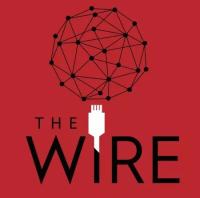
While out campaigning in Tamil Nadu’s Madurai last week and referring to “both parties” – the DMK and AIADMK – Amit Shah said they had ensured that Tamil Nadu had ‘not witnessed development’.
He reportedly asked the people of the state to find out about the offences both parties had committed and send them packing, by electing Prime Minister Narendra Modi, “who was taking the country along a developmental path, for the third time.”
But Shah’s statements are completely at variance with the facts.
1. Tamil Nadu is among the largest manufacturing bases in India.
It had 39,512 factories in FY22 – the highest in India – according to the statistics ministry’s Annual Survey of Industries.
2. As part of the so-called global ‘China+1’ strategy, India has been hoping to position itself as an alternate manufacturing destination for multinational companies, which the US can in turn source from.
In India, Tamil Nadu is a major hub for the electronic manufacturing services sector, say analysts.
The Apple/iPhone factories that Modi loves boasting about are in Tamil Nadu. In December 2023, it was reported that Tata planned to build one of India’s biggest iPhone assembly plants in Tamil Nadu’s Hosur. Bloomberg reported citing sources that the plant would provide 50,000 workers jobs within two years.
3. There were social media messages out earlier this year that UP had “surpassed” Tamil Nadu’s rate of growth, the political point being that UP is the new boom centre.
Adityanath is taken everywhere as a key campaigner for the BJP. But former finance minister and now IT minister in Tamil Nadu, P. Thiagarajan, established that
“Two decades ago, Uttar Pradesh’s economy was 19% larger than that of Tamil Nadu (2004-2005) and remained larger up until 2013-2014. It has only fallen behind as that of Tamil Nadu since the dawn of “Acche Din”, and was most recently 95.48% of Tamil Nadu’s economy (2022-2023).”

Credit: Frontline magazine. Source: https://ptrmadurai.com/has-uttar-pradesh-s-economy-surpassed-tamil-nadu.
Read more here of wide disparities.
4. Differences in poverty figures in states continuously electing the BJP versus those in south India, especially Tamil Nadu, are stark.
Tamil Nadu’s poor are 2.2% of the population (as per NITI Aayog).
In Gujarat, where Modi was chief minister for over 12 years and the BJP in power since the 1990s, the poor are 11.66%.
Bihar has 33.8% poor, Uttar Pradesh 22.9% and Madhya Pradesh 20.6%.

Chart: The Wire. Source: NITI Aayog’s multidimensional poverty report. Figures as of 2019-2021.
5. The Annual Survey of Industries reported recently that for over two decades, Tamil Nadu has recorded the highest share of women in the factory workforce.
A whopping 42% of India’s total women factory workforce was employed in Tamil Nadu as of 2021-2022. This is when India has a major problem with getting women into the workforce.
6. In terms of the Human Development Index or HDI, Tamil Nadu has been ranked as number 11 in India with a score of 0.686 in 2021. That is up five ranks from 1990, when it was ranked 16, with a score of 0.475.
BJP leaders are in a twist about Tamil Nadu. This is because it is an example of how the BJP has never been in power here, where, coincidentally, figures denoting ‘development’ and progress as well as those of social indicators and social harmony are at the top of the Indian charts.
Incidentally, scholars have also noted this coincidence about Tamil Nadu and other southern states, which have consistently recorded high progress, harmony and healthier figures being the ones where the BJP has never had a foothold.
Tamil Nadu’s 39 parliamentary seats go to vote on April 19, in the first phase to elect their representatives.






